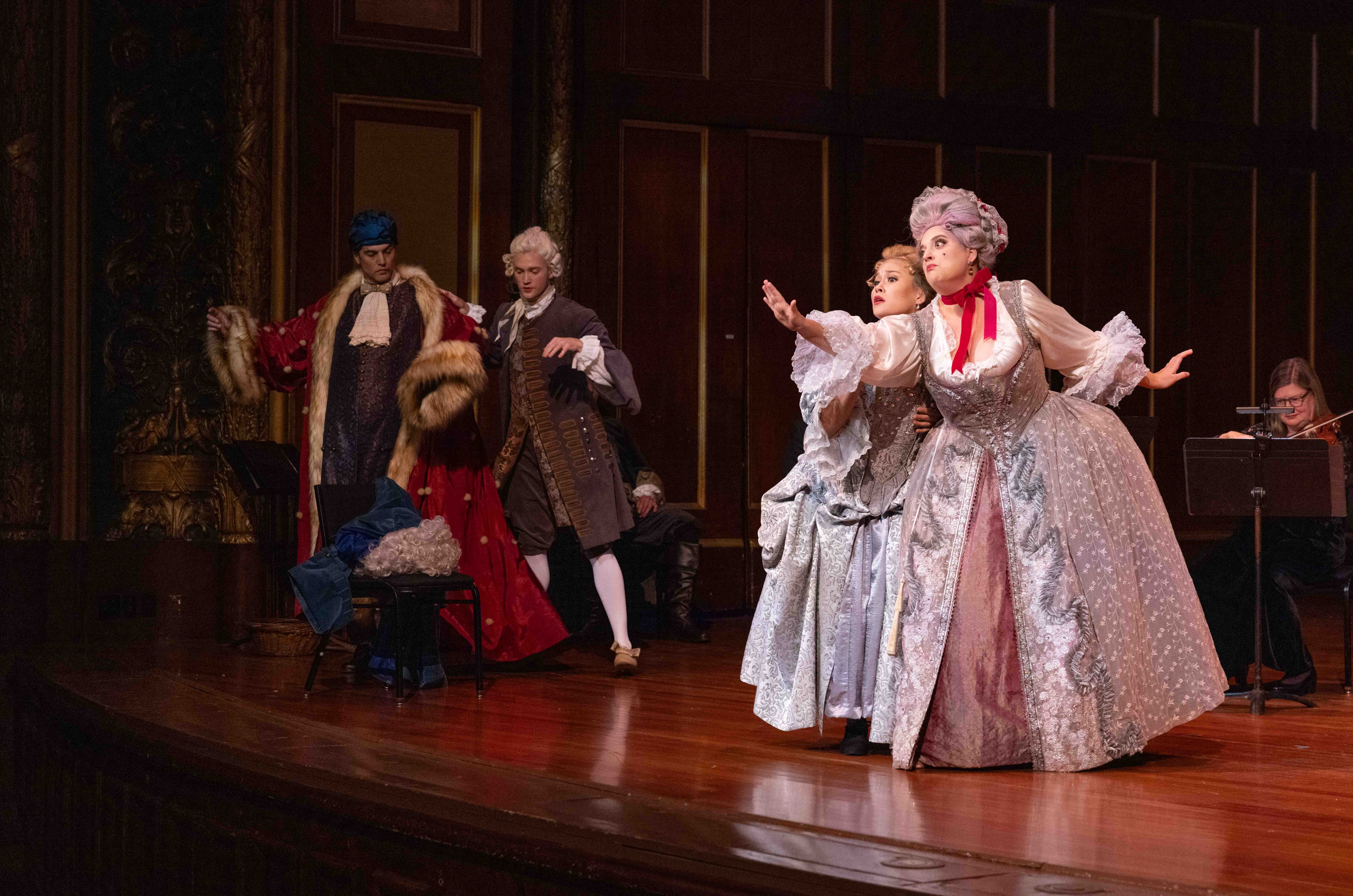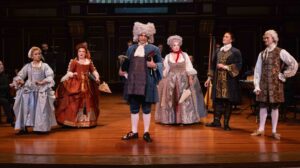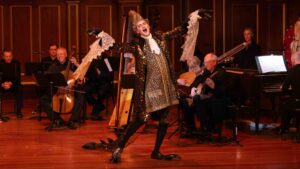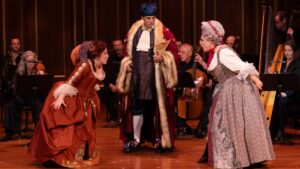Opera Director & Designer
The Dragon of Wantley
John Frederick Lampe (1703–1751)
“The Dragon of Wantley” is a burlesque opera composed by John Frederick Lampe with a libretto by Henry Carey. It was first performed in 1737 at the Haymarket Theatre in London. The opera is a comedic and satirical work that parodies the popular operatic conventions of the time. Gilbert Blin staged this opera for the Boston Early Music Festival Chamber Opera Series.

Boston Early Music Festival
Chamber Opera Series
NEC’s Jordan Hall, Boston
Premiere November 25, 2023
Artists
Paul O’Dette, Musical Director
Stephen Stubbs, Musical Director
Gilbert Blin, Stage Director
Robert Mealy, Concertmaster
Melinda Sullivan, Choreography
Kelly Martin, Lighting Designer
Jason McStoots, Assistant Stage Director
The Dragon of Wantley
The story revolves around the fictional character of Moore of Moore Hall, who is tasked with defending the town of Wantley from a fearsome dragon. The dragon has been terrorizing the town and devouring its inhabitants. Moore, aided by Margery, his sweatheart, takes on the challenge of slaying the dragon and saving the townspeople.
“The Dragon of Wantley” combines elements of English folklore, mythology, and social commentary. It uses witty dialogue, lively music, and humorous situations to entertain the audience. The opera was well-received during its initial run and remained popular throughout the 18th century.
Comical Opera
Lampe’s composition for “The Dragon of Wantley” features a blend of traditional English folk tunes and Italian opera styles, reflecting the influence of both genres on 18th-century English musical theater.
While the fame of “The Dragon of Wantley” has diminished over time, it remains a notable work within the history of English opera. Its humorous and light-hearted nature, combined with Lampe’s musical talent, continues to make it an intriguing piece of entertainment from the 18th century.
Get in touch
Copyright
© 2024 Gilbert Blin, All rights reserved


